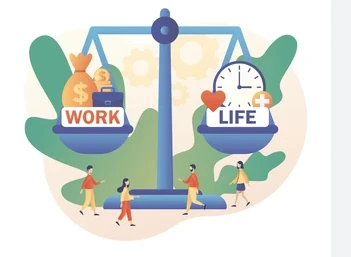
Balancing Job Satisfaction And Financial Stability
Balancing job satisfaction with financial stability can be tricky, but it’s important to find a good mix for your overall well-being. Here’s how you can approach this balance:
- Identify Your Priorities: Start by figuring out what matters most to you. Is it the passion for your work, job security, or a high salary? Knowing your priorities helps you make better decisions.
- Assess Financial Needs: Understand your financial requirements. Calculate how much money you need for essentials like housing, food, and savings. This helps in setting a financial baseline that you need to meet.
- Explore Your Options: Look for jobs that align with both your interests and financial needs. Sometimes, you might find a role that’s fulfilling but pays less, or a high-paying job that’s less exciting. Weigh these options carefully.
- Consider Side Hustles: If a job you love doesn’t pay enough, think about a side job or freelance work. This way, you can pursue your passion while still covering your financial needs.
- Plan for the Long Term: A high-paying job might be satisfying in the short term but consider if it aligns with your long-term career goals. Conversely, a job you love might offer growth opportunities that can lead to higher pay in the future.
- Budget Wisely: Good financial planning can make a big difference. Create a budget to manage your money better and save for the future. This way, you might be able to take a job with lower pay if it makes you happier.
- Negotiate: Don’t be afraid to negotiate your salary or benefits. Sometimes, you can get a better deal if you ask.
- Seek Fulfillment Outside Work: Sometimes, job satisfaction comes from activities outside work, such as hobbies or volunteering. This can balance out the lack of satisfaction from your job.
Balancing job satisfaction with financial needs is about finding what works best for you. By understanding your priorities and managing your finances wisely, you can create a more satisfying and stable career path.
Balancing job satisfaction with financial stability can be tricky, but it’s important to find a good mix for your overall well-being. Here’s how you can approach this balance:
- Identify Your Priorities: Start by figuring out what matters most to you. Is it the passion for your work, job security, or a high salary? Knowing your priorities helps you make better decisions.
- Assess Financial Needs: Understand your financial requirements. Calculate how much money you need for essentials like housing, food, and savings. This helps in setting a financial baseline that you need to meet.
- Explore Your Options: Look for jobs that align with both your interests and financial needs. Sometimes, you might find a role that’s fulfilling but pays less, or a high-paying job that’s less exciting. Weigh these options carefully.
- Consider Side Hustles: If a job you love doesn’t pay enough, think about a side job or freelance work. This way, you can pursue your passion while still covering your financial needs.
- Plan for the Long Term: A high-paying job might be satisfying in the short term but consider if it aligns with your long-term career goals. Conversely, a job you love might offer growth opportunities that can lead to higher pay in the future.
- Budget Wisely: Good financial planning can make a big difference. Create a budget to manage your money better and save for the future. This way, you might be able to take a job with lower pay if it makes you happier.
- Negotiate: Don’t be afraid to negotiate your salary or benefits. Sometimes, you can get a better deal if you ask.
- Seek Fulfillment Outside Work: Sometimes, job satisfaction comes from activities outside work, such as hobbies or volunteering. This can balance out the lack of satisfaction from your job.
Balancing job satisfaction with financial needs is about finding what works best for you. By understanding your priorities and managing your finances wisely, you can create a more satisfying and stable career path.

Related Posts